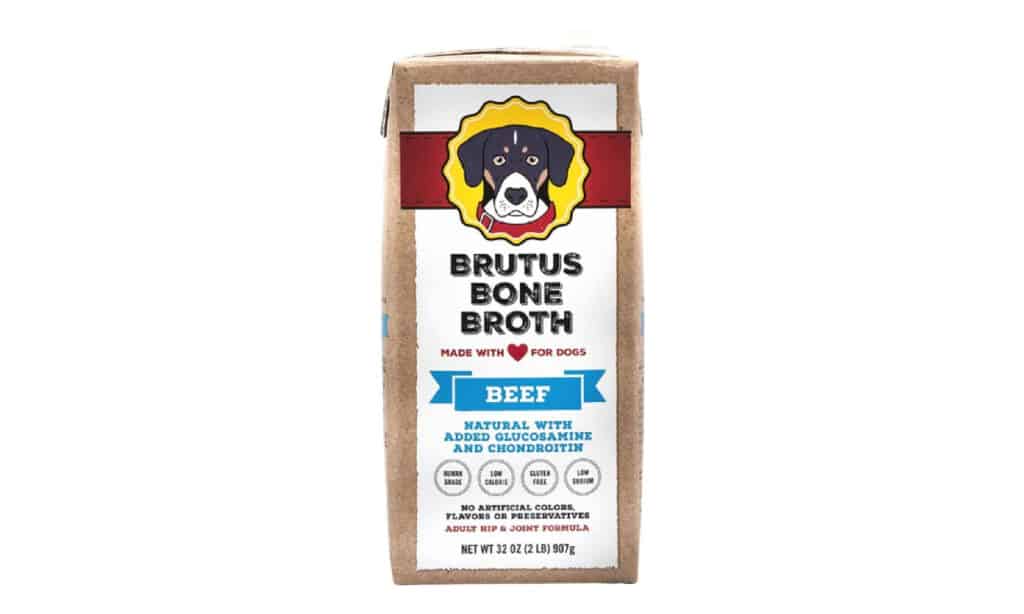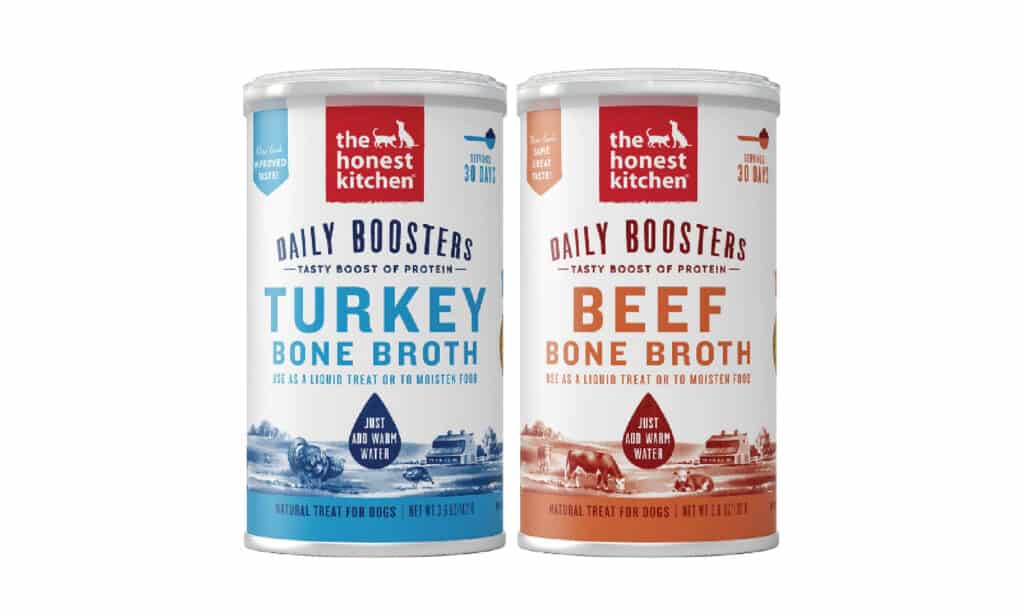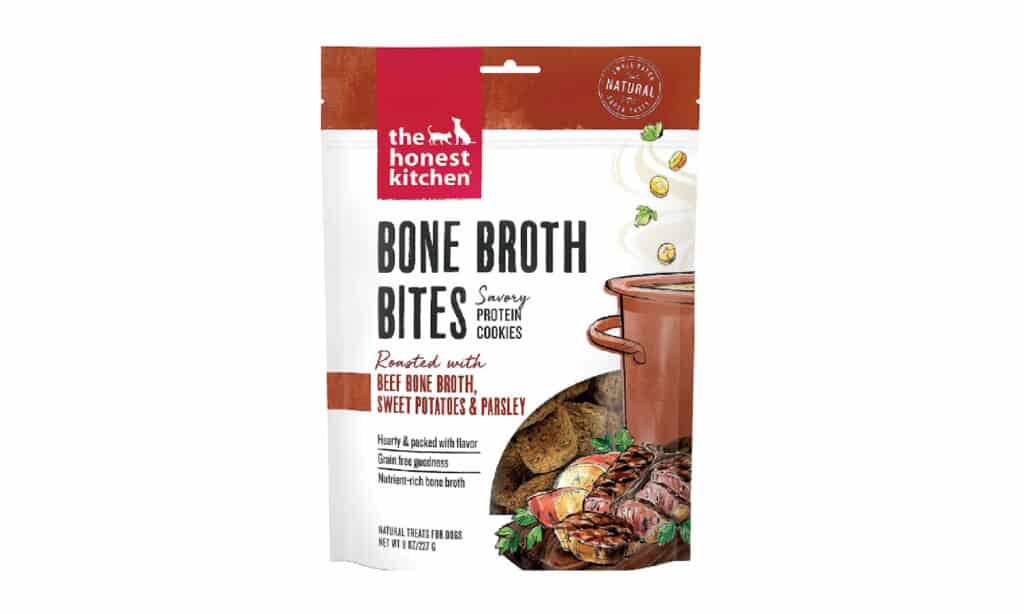Welcome to my blog where we will be exploring the question, “Can dogs eat miso soup?” As a pet owner, it’s important to ensure that our furry friends are getting a well-balanced and nutritious diet. While dogs are known to be meat-eaters, there are some human foods that they may be able to enjoy in moderation. Miso soup, a traditional Japanese soup made from fermented soybeans, is a popular dish that many people enjoy. But is it safe for dogs to consume? In this blog, we will be discussing the potential benefits and risks of feeding miso soup to dogs, as well as exploring alternative food options that may be more suitable for our canine companions. Dog owners curious about miso soup for pets – keep reading to learn about safety, ingredients, and alternatives.

What is Miso Soup:
Miso soup is a classic Japanese dish that’s made by fermenting soybeans. First, the soybeans are mashed and mixed with water and a paste made from rice or barley. Then, the mixture is left to ferment for several months, which breaks down the proteins and carbohydrates in the soybeans and creates a thick paste with a delicious umami flavor. This paste is mixed with dashi (Japanese fish stock), tofu, seaweed, scallions, or mushrooms for flavor and nutrition.
Miso soup is a popular breakfast food or light meal in Japan and is known for its health benefits. Miso paste is packed with protein, vitamins, minerals, and probiotics that can help with digestion and strengthen the immune system. However, it’s also important to note that miso soup can be high in sodium and should be consumed in moderation, especially for those with high blood pressure or sensitivity to salt.
While miso soup is a beloved dish for humans, it’s important to consider whether or not it’s safe for our furry friends to eat. In the next section, we’ll dive into the potential risks and benefits of feeding miso soup to dogs.
Can Dogs Eat Miso Soup:
When it comes to feeding our canine companions, it’s natural to wonder if they can enjoy some of the same foods that we do. One popular dish that some dog owners may be curious about is miso soup. So, can dogs eat miso soup?
The short answer is that it depends. While miso soup can be a healthy and nutritious food for humans, it may not be the best choice for dogs. “Dogs can’t digest miso soup like humans, and some ingredients may not be safe for them.”
One of the main concerns with feeding miso soup to dogs is its high sodium content. Dogs have a lower tolerance for salt than humans, and consuming too much sodium can lead to health problems such as dehydration, kidney damage, and high blood pressure. Onions and garlic in miso soup are toxic to dogs and should be avoided.
If you’re considering feeding miso soup to your dog, it’s important to consult with a veterinarian first. A vet can advise if miso soup is safe for your dog and suggest alternative foods. Practice moderation and balance, feed safe and healthy foods tailored to your dog’s needs.
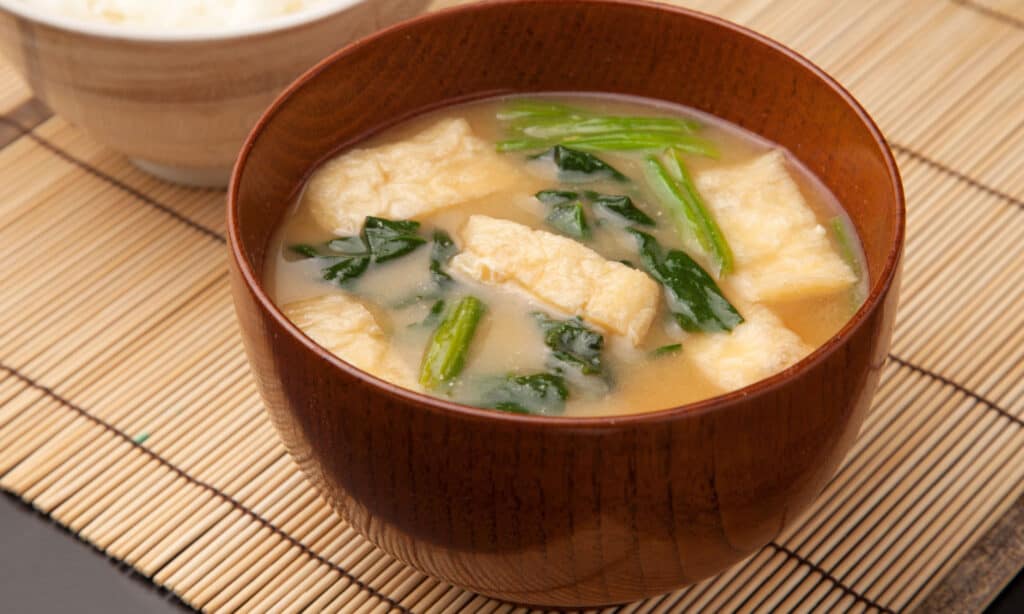
Harmful Ingredients in Miso Soup:
While miso soup can be a healthy and flavorful dish for humans, it contains certain ingredients that can be harmful or toxic to dogs. One of the primary concerns is the high sodium content in miso soup. Dogs have a lower tolerance for salt than humans, and consuming too much sodium can lead to health problems such as dehydration, kidney damage, and high blood pressure.
Another potential harmful ingredient in miso soup for dogs is onions and garlic. These ingredients are commonly used to enhance the flavor of miso soup, but they can be toxic to dogs and cause serious health problems such as anemia, lethargy, and gastrointestinal issues. Avoid miso soup with onions or garlic as even small amounts can be harmful to dogs.
In addition to sodium and onions/garlic, some other ingredients in miso soup may also be problematic for dogs. For example, some miso soup recipes may include mushrooms, which can be toxic to dogs if they contain certain compounds. Seaweed, another common ingredient in miso soup, may be safe for dogs in small amounts but can cause gastrointestinal upset if consumed in excess.
If you’re considering feeding miso soup to your dog, it’s important to carefully check the ingredients list and consult with a veterinarian first. They can help you determine if miso soup is a safe and appropriate addition to your dog’s diet, and offer suggestions for alternative foods that may be better suited to your furry friend’s nutritional needs. Be mindful of miso soup ingredients & moderate your dog’s diet to keep them healthy.
Safe Ingredients in Miso Soup:
Although some ingredients in miso soup can be harmful to dogs, there are also safe and nutritious ingredients that our furry friends can enjoy. Here are some examples of safe ingredients in miso soup for dogs:
- Miso paste: Miso paste is the primary ingredient in miso soup and is made from fermented soybeans. It’s a great source of protein, vitamins, and minerals and contains probiotics that can boost digestion and the immune system.
- Tofu: Tofu is a common ingredient in miso soup and is a low-fat, low-calorie source of protein and other nutrients. It’s ideal for dogs that need to maintain or lose weight.
- Carrots: Carrots are a healthy, low-calorie vegetable that can add nutrition and crunch to miso soup. They contain vitamins and minerals that are beneficial for dogs, and their texture can be good for dental health.
- Broccoli: Like carrots, broccoli is a nutrient-dense vegetable that can provide vitamins, minerals, and fiber to your dog’s diet. It’s a great ingredient to add to miso soup to increase its nutritional value.
It’s important to remember that not all dogs will be able to tolerate all of these ingredients. Before introducing new foods to your dog’s diet, it’s best to consult with a veterinarian to ensure that they’re safe and appropriate. Incorporating some of these safe ingredients in moderation can add variety and nutrition to your dog’s diet, making mealtime more enjoyable for your furry friend.
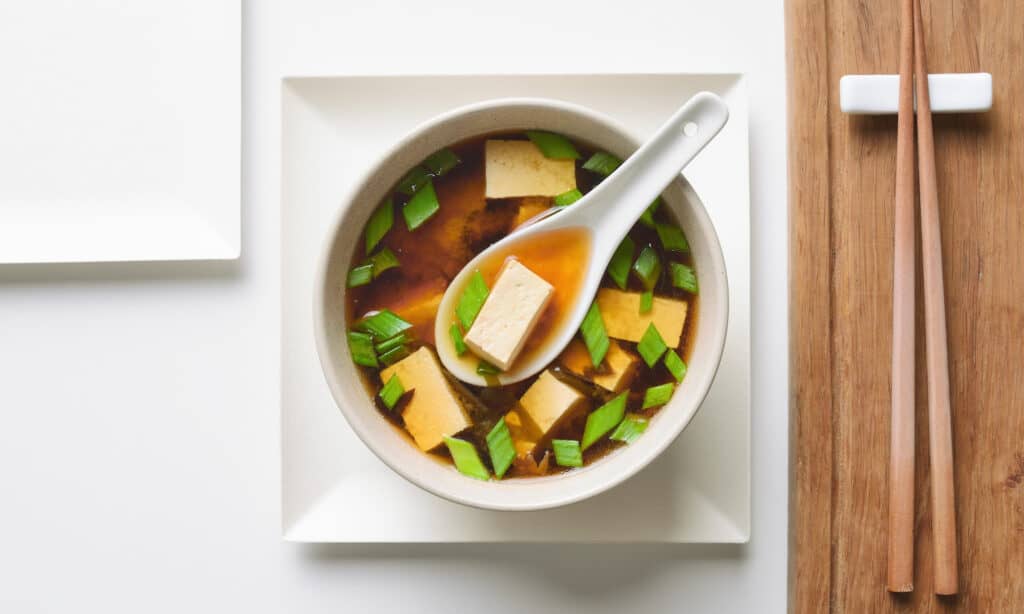
What Signs To Watch For If Your Dog Accidentally Ate A Lot of Miso Soup?
If your dog accidentally eats a large amount of miso soup, it’s important to monitor them closely for any signs of adverse reactions or health problems. Here are some common signs to watch for if your dog ingests too much miso soup:
- Vomiting: Excessive consumption of miso soup can irritate your dog’s stomach and lead to vomiting. If your dog starts vomiting repeatedly or seems to be in distress, it’s important to seek veterinary attention right away.
- Diarrhea: Misos soup’s high sodium content can also cause diarrhea in dogs. If your dog has diarrhea after eating miso soup, hydrate them and contact a vet if symptoms persist.
- Dehydration: As mentioned earlier, high levels of sodium in miso soup can lead to dehydration in dogs. Signs of dehydration include lethargy, dry gums, and sunken eyes. If you notice these symptoms, it’s important to provide your dog with plenty of fresh water and contact your veterinarian.
- Hyperactivity: Miso soup can contain caffeine, which can make dogs hyperactive and restless. Watch for hyperactivity in your dog after eating miso soup; seek vet attention if needed.
If your dog displays any of these symptoms or shows signs of distress after consuming miso soup, it’s important to seek veterinary attention right away. Your veterinarian can evaluate your dog’s condition and provide appropriate treatment to prevent further complications.
When or If You Should Go To The Vet?
If you suspect that your dog has consumed a large amount of miso soup or is experiencing any symptoms of illness after eating miso soup, it’s important to contact your veterinarian right away. Your veterinarian can provide advice on how to proceed and may recommend that you bring your dog in for an examination.
In general, you should consider seeking veterinary attention if your dog displays any of the following symptoms:
- Repeated vomiting or diarrhea
- Severe or prolonged lethargy
- Dehydration
- Loss of appetite
- Difficulty breathing
- Seizures or tremors
These symptoms may indicate that your dog is experiencing a serious health problem that requires immediate attention. It’s always better to err on the side of caution and seek veterinary care if you’re concerned about your dog’s health.
If you’re unsure whether or not to seek veterinary attention, you can also contact a pet poison control hotline for advice. These hotlines can provide guidance on whether or not a particular food or substance is toxic to dogs and what steps you should take if your dog has consumed it.
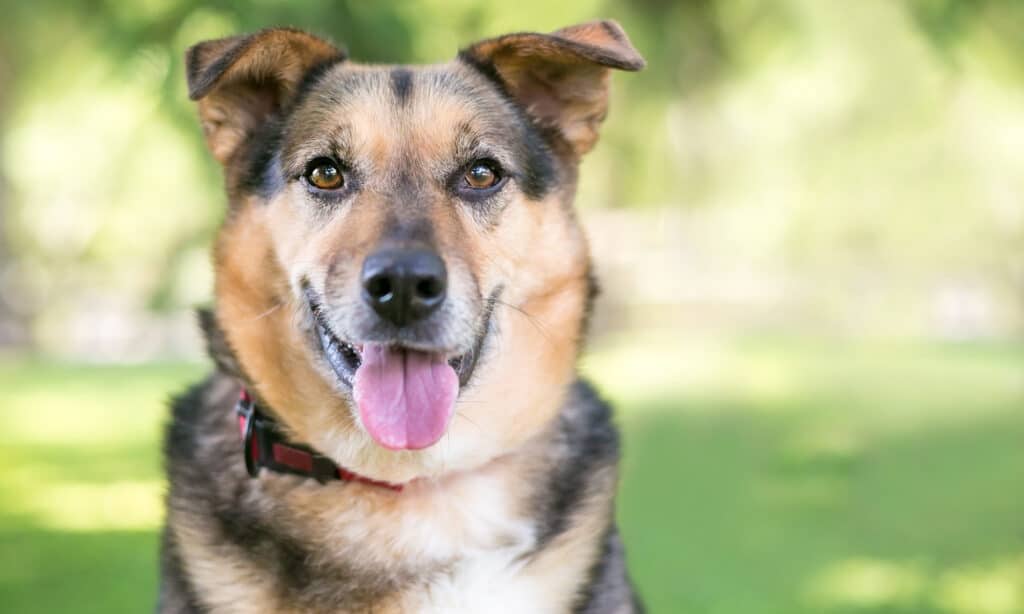
Safe Dog-Friendly Alternative to Miso Soup:
If you’re looking for a safe and tasty alternative to miso soup that your furry friend can enjoy, there are several options available. Here are some ideas to consider:
- Homemade broth: Make homemade broth by boiling bones with veggies like carrots, celery, and parsley. This provides a lot of nutrition for your dog and is a great alternative to miso soup.
- Bone broth: This is similar to homemade broth but made specifically from animal bones. It’s a nutrient-dense option that offers numerous health benefits for your dog and is simple to prepare.
- Wet dog food: Many wet dog foods come in flavors like chicken or beef that are comparable to miso soup. These can be a convenient and safe alternative for your dog.
- Cooked lean meats: Chicken, turkey, and lean cuts of beef are all healthy sources of protein for dogs. You can cook them and mix them with veggies or brown rice to make a nutritious meal for your dog.
- Fresh vegetables: Vegetables like carrots, green beans, and sweet potatoes are all safe and healthy options for dogs. You can cook or serve them raw to add some healthy variety to your dog’s diet.
It’s worth noting that not all dogs will tolerate all of these options equally well. Before introducing any new foods to your dog’s diet, it’s always best to check with your veterinarian to make sure they are safe and appropriate. By opting for safe and nutritious alternatives to miso soup, you can ensure your furry friend stays healthy and happy.
Healthy Store-Bought Options:
Conclusion:
In conclusion, while miso soup may be a popular and healthy dish for humans, it’s important to approach feeding it to our furry friends with caution. Certain ingredients in miso soup can be harmful or toxic to dogs, and excessive consumption can lead to a range of health problems.
If you’re considering feeding miso soup to your dog, it’s important to be aware of the potential risks and to consult with a veterinarian before introducing new foods to your dog’s diet. Additionally, if your dog accidentally consumes a large amount of miso soup, it’s important to monitor them closely for any signs of adverse reactions or health problems and to seek veterinary attention if necessary.
Fortunately, there are many safe and nutritious alternatives to miso soup that your dog can enjoy. Homemade broth, bone broth, wet dog food, cooked lean meats, and fresh vegetables are all healthy options that can provide a range of health benefits for your furry friend.
By taking the time to educate yourself about the risks and benefits of feeding miso soup to your dog and exploring alternative options, you can ensure that your furry friend stays healthy, happy, and well-fed for years to come.

